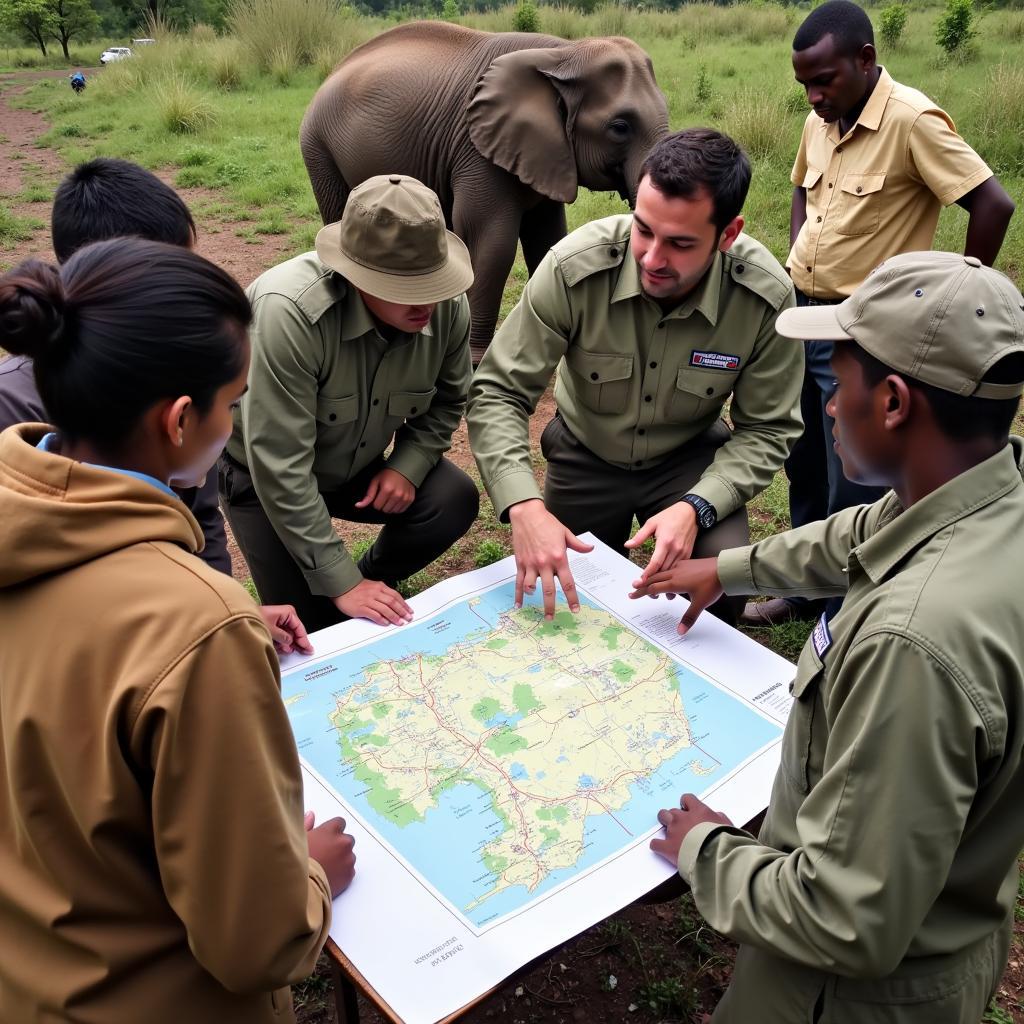Understanding African Elephant Attacks on Humans
African Elephant Attacks On Humans are a complex issue, often rooted in habitat loss, human encroachment, and fear. While elephants are generally peaceful creatures, they can become aggressive when threatened or provoked. This article delves into the reasons behind these attacks, exploring the contributing factors and offering insights into how to minimize such encounters.
While elephants are majestic creatures, it is essential to understand the potential dangers associated with them and how to react appropriately in their presence. African elephant attacks car incidents are a stark reminder of their power and the need for caution.
Why Do African Elephants Attack Humans?
Several factors contribute to African elephant attacks. Habitat loss due to deforestation and expanding human settlements forces elephants into closer proximity with people, increasing the chances of conflict. Crop raiding, driven by the elephants’ need for food, often leads to negative interactions with farmers protecting their livelihoods. Human activities, such as poaching and tourism, can also disrupt elephant behavior and trigger aggression.
Furthermore, elephants are intelligent and emotional animals capable of experiencing fear and trauma. Past negative experiences with humans, including poaching or harassment, can lead to defensive or retaliatory attacks. Mother elephants are particularly protective of their young and will readily attack if they perceive a threat.
How to Minimize the Risk of African Elephant Attacks
Understanding elephant behavior is crucial for minimizing the risk of attacks. Maintaining a safe distance and avoiding direct eye contact is essential. Never approach an elephant, especially a mother with calves. If you encounter an elephant while on foot, stand still, speak in a calm voice, and slowly back away. If the elephant charges, make yourself look as large as possible, shout loudly, and throw objects towards it to deter it.
Vehicles can offer some protection, but elephants have been known to attack cars. If confronted by an elephant in a vehicle, remain calm, avoid sudden movements, and do not attempt to drive away quickly. African elephant attack videos can provide valuable insights into elephant behavior during these encounters.
What are the signs of an agitated elephant?
Recognizing the signs of an agitated elephant can help you avoid a potentially dangerous situation. These signs include flared ears, raised trunk, trumpeting, head shaking, and pawing the ground. If you observe these behaviors, retreat immediately.
 An agitated African elephant displaying warning signs
An agitated African elephant displaying warning signs
Living Alongside Elephants: Conservation Efforts
Conserving elephant habitats and mitigating human-wildlife conflict are key to reducing attacks. Establishing protected areas and corridors for elephants to roam freely minimizes their contact with humans. Community-based conservation programs that involve local communities in elephant management and provide compensation for crop damage can also foster co-existence. Educating local communities and tourists about elephant behavior and safety precautions is crucial for preventing future incidents.
Understanding the dangers posed by other African wildlife is also important for overall safety. Knowledge about African killer ants or the African giant snake can contribute to a safer experience. Similarly, understanding the behavior of the African king kobra is essential.
 Elephant conservation efforts involving community engagement
Elephant conservation efforts involving community engagement
Conclusion
African elephant attacks on humans are a tragic consequence of human-wildlife conflict. By understanding the reasons behind these attacks, implementing effective conservation strategies, and educating ourselves about elephant behavior, we can work towards mitigating the risks and ensuring the long-term survival of these magnificent creatures.
FAQ
- What should I do if an elephant charges me?
- Are all elephants aggressive towards humans?
- How can I contribute to elephant conservation?
- What are the main threats to African elephants?
- Where can I find more information about elephant safety?
- What should I do if I see an injured elephant?
- What role does tourism play in elephant conservation?
Common Scenarios and Questions
- Scenario: You are on a safari and encounter an elephant blocking the road. Question: What is the safest course of action?
- Scenario: You are hiking and see elephant dung. Question: What does this indicate and what should you do?
- Scenario: You are camping and hear elephants nearby. Question: What precautions should you take?
Further Exploration
For more information on African wildlife and related topics, you can explore other articles on our website.
Call to Action
For any assistance or further inquiries, please contact us at +255768904061, email kaka.mag@gmail.com, or visit us at Mbarali DC Mawindi, Kangaga, Tanzania. We have a 24/7 customer service team ready to assist you.


